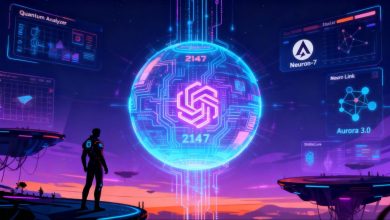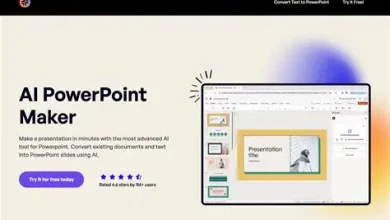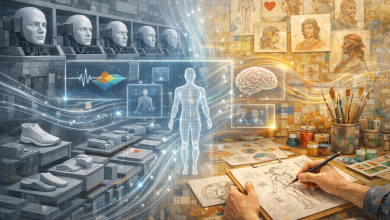
We are witnessing the undeniable rise of the “Evolving Employee” – a generation, particularly Gen Z, who prioritise purpose, culture, and genuine connection as much as, if not more than, their financial compensation. Attracting this talent requires a seismic shift in strategy, and at the heart of this transformation lies the intelligent integration of Artificial Intelligence.
My view is clear: AI will not replace the human element of recruitment. What it will do is liberate talented recruiters from the limitations of administrative work, allowing them to focus on what truly matters – building relationships, understanding candidate motivations, and acting as genuine talent partners.
For too long, the recruitment model has been overly transactional, reactive and inefficient. Recruiters have been bogged down in a repetitive cycle of sifting, scheduling, and data entry. This isn’t about mechanising human connection; it’s about amplifying it, allowing us to pivot from process managers to strategic architects of talent, fostering the genuine connections that today’s talent seeks.
Imagine a world where the hours once lost to repetitive tasks are reclaimed, dedicated instead to strategic engagement and insightful conversations. This is the promise AI brings to the recruiter’s workflow. Consider the often arduous task of crafting compelling, personalised outreach. Traditionally, this is a time-consuming endeavour, often resulting in generic messages that fail to cut through the noise. Here, AI becomes an invaluable ally. By rapidly analysing a candidate’s public profile including their experience, skills, interests, and even their digital footprint, AI tools can assist in drafting highly tailored introductory messages. This isn’t about robots writing your emails; it’s about intelligent AI-integrated assistants providing the framework for human recruiters to add that crucial, personal touch, making each interaction feel bespoke and considered. This level of personalisation, previously a luxury only afforded to a handful of top-tier candidates, can now be scaled across a much wider talent pool, significantly improving response and engagement rates.
Furthermore, the sheer volume of candidate information can be overwhelming. Recruiters face a daily flood of resumes, portfolios, and social profiles, each demanding careful review. AI excels at synthesising this data. Tools can rapidly process vast amounts of unstructured information to summarise candidate profiles, highlighting key skills, relevant experience, career trajectories, and potential cultural fit. This ability to distil high volumes of data into concise, actionable insights allows recruiters to quickly assess suitability and focus their efforts on the most promising candidates. It allows us as recruiters to move beyond guesswork into strategic intelligence. Consider the speed at which AI can identify transferable skills from diverse backgrounds, or flag candidates whose career paths demonstrate exceptional adaptability – this goes beyond simple keyword matching, ultimately offering a holistic view of a candidate’s potential.
The benefits of AI extend even to the interview process, allowing recruiters to delve deeper. Generating insightful interview questions, particularly for niche or complex roles, can be a time-consuming exercise. AI, fed with job descriptions, candidate profiles, and desired competencies, is able to develop a comprehensive set of questions designed to probe specific skills, traits and drivers. This also helps recruiters understand candidate motivations even further. By automating these foundational questions, recruiters are instead able to focus their energy on active listening, nuanced observation, and truly understanding the individual across the table, rather than scrambling to formulate the next query. This leads to more meaningful conversations and, ultimately, more informed hiring decisions.
Beyond question generation, AI can also provide real-time insights during interviews, perhaps by flagging areas of a candidate’s experience that align perfectly with company values, or suggesting follow-up questions based on previous answers. This elevates the recruiter from an interrogator to a true conversational partner, fostering a more positive and productive candidate experience.
What I’m most excited about is how AI has already started to prove its ability in predicting candidate success rates and retention. By analysing historical data on successful hires, AI algorithms can identify patterns that human recruiters might miss. This predictive capability allows organisations to make more informed hiring decisions, reducing turnover and improving overall workforce stability. Imagine being able to identify, with a higher degree of certainty, which candidates are not only a good fit for the role but also for the long-term culture of the organisation. This shifts the focus from simply filling a vacancy to building a sustainable and thriving workforce.
In essence, the future of talent acquisition belongs to those who understand the power shift, leverage data-driven strategies, and intelligently deploy technology. AI, when embraced strategically, transforms the recruiter’s workflow from a reactive, administrative burden into a proactive and highly effective engine for growth. Those recruiters who fail to embrace AI will, undoubtedly, find themselves outpaced by those who do. And so, the choice is clear: adapt and lead, or resist and be left behind in the ever-evolving landscape of talent acquisition.





